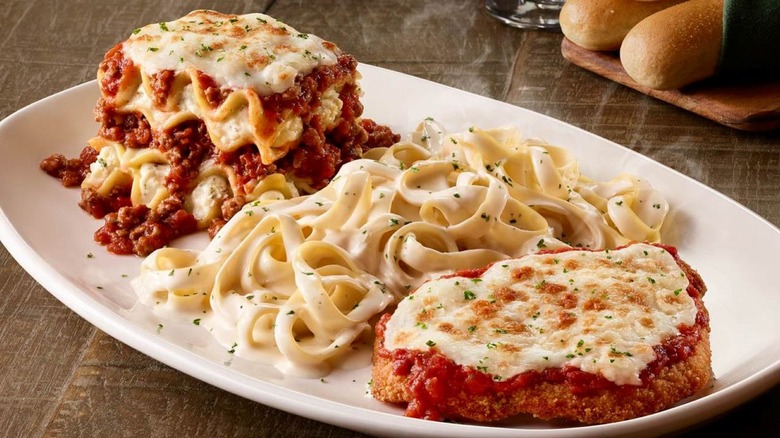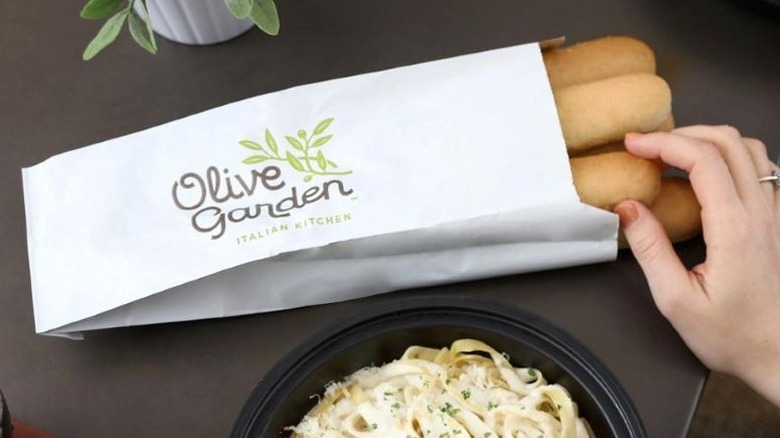Olive Garden's Strict Rules When Handling Food Allergies
Eating out is something most of us can do without thinking twice, but for people who have food allergies, a restaurant meal could potentially be life-threatening. About six percent of both American adults and children have a food allergy, according to the U.S. Centers for Disease Control and Prevention, and the CDC also says one third of them have had an allergic reaction at a restaurant. Casual dining chain Olive Garden has strict rules in place for handling orders for patrons with food allergies to reduce the risk as much as possible.
Olive Garden advises diners to let their server know before ordering if they have a food allergy, which will lead to steps in the kitchen like changing gloves and using new serving utensils, and says patrons should ask to speak to the manager if they have any questions. They can also call the Guest Relations Department a few days ahead of their visit for information.
A Redditor who said they were a "certified trainer" for Olive Garden said workers must watch a video about its guidelines for handling food allergies, and claimed they can't even begin making a meal for someone with an allergy until the manager tells them about it. Additionally, the manager will carry the meal to the table separately if it's being served with other food. Another person in the thread appeared to back that up, saying that whenever they go to Olive Garden with an acquaintance with food allergies, the manager immediately comes over to make sure they clearly understand the restrictions.
Olive Garden's food allergen disclosures aren't legally necessary
Packaged foods are required by federal law to reveal if they contain any of the "Big 9" food allergens — milk, eggs, fish, shellfish, tree nuts, peanuts, wheat, soybeans, and sesame. However, there's no such national law for restaurants, and California will become the only state to mandate it as of January 2026 for those with at least 20 locations. That means Olive Garden doesn't need to share allergen information for its restaurants, but does for its bottled salad dressings, including the one we reviewed for our ranking of store-bought Caesar dressings.
Even though it's not required, many chain restaurants disclose some or all of the major allergens in its food, including Olive Garden. A chart on its website shows the Big 9, as well as sulfites and gluten, and even breaks down shellfish into crustaceans and mollusks. It also notes if a food is fried or grilled, since those items have a higher risk of cross-contamination. Despite all its practices and disclosures, Olive Garden says it can't guarantee completely eliminating the risk because of factors like shared cooking space and relying on suppliers for ingredient information.
Olive Garden did take special action so people with sesame allergies could continue to enjoy its iconic breadsticks. After its suppliers began including sesame flour in the breadsticks in 2022, Olive Garden began hearing from concerned customers. It worked to switch suppliers, and they were sesame-free again by October 2023.


